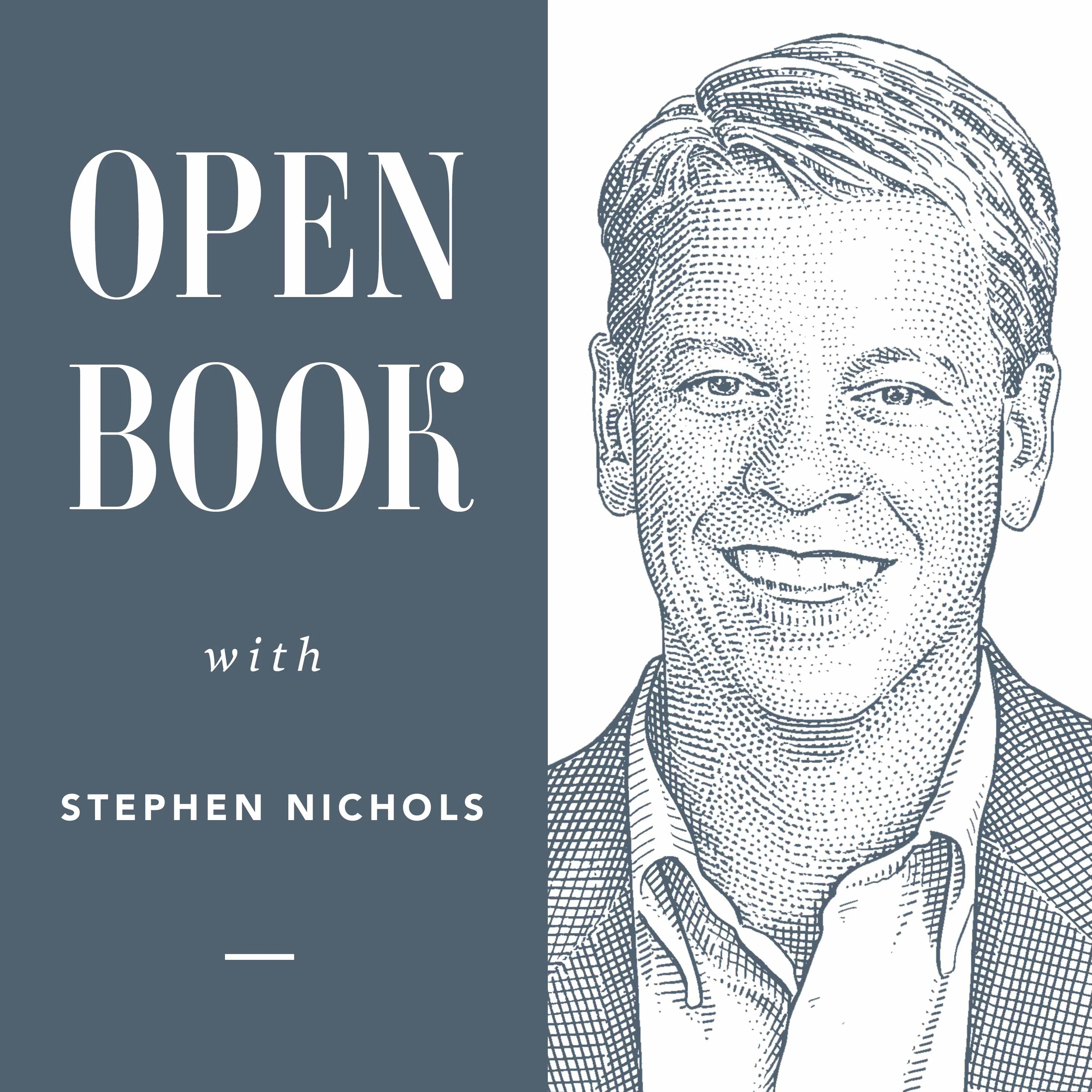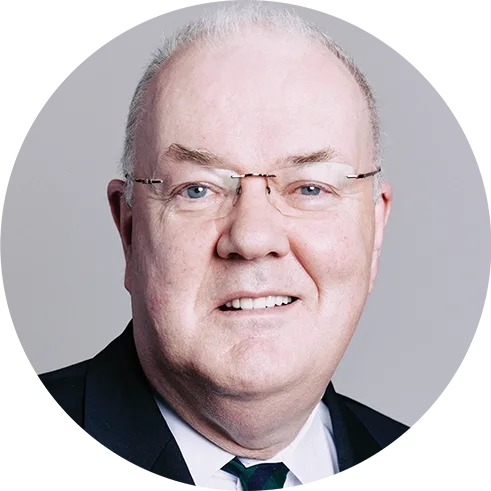Derek Thomas on Lloyd-Jones’ Preaching and Preachers

Generations of preachers have been influenced by the ministry of Martyn Lloyd-Jones. Today on the Open Book podcast, Derek Thomas discusses his favorite book on preaching with Stephen Nichols.
Dr. Stephen Nichols: Welcome back to another episode of Open Book. We are visiting again with Dr. Derek Thomas. He’s been walking through what so far has been a very British library. We’ve thrown in one Frenchman, right?
Dr. Derek Thomas: There hasn’t been a single American yet.
Nichols: There has not been a single American, unless we count an email by Ligon Duncan.
Thomas: There was Ligon Duncan.
Nichols: And maybe that’s what Americans bring to the table—an email. But we are going back to, not a Brit, a Welshman, “the Doctor.”
Thomas: The Doctor.
Nichols: So, who is the Doctor? Some people might not know who the Doctor is.
Thomas: Martyn Lloyd-Jones, perhaps the best preacher of the twentieth century.
Nichols: You heard him preach at his pulpit in London, at Westminster?
Thomas: I did, but I also heard him as a college student. He would come to Aberystwyth once a year in the summer, preach in Welsh in the afternoon and in English in the evening, and two thousand, which for Wales are enormous numbers . . .
Nichols: That’s a big crowd.
Thomas: . . . would hear him, so maybe four thousand in total, afternoon and evening.
Nichols: And which service did you go to?
Thomas: I went to both. I was a Welsh speaker. I didn’t speak English until I was probably a teenager. I would translate from Welsh in my head into English, but I think I was probably thirteen or fourteen when I suddenly realized I wasn’t translating anymore. I was thinking in English.
I remember listening to him preach on Psalm 8, “What is man that you are mindful of him, or the son of man,” and so on, “What is man?” I can remember the sermon and being riveted by it. And he spent the first half talking about all of the achievements—and we’re talking about 1972, ’73, ’74, that period—so the moon landing was fairly recent in people’s minds. He would talk about man’s great achievements, and then he would talk about man’s sinfulness and depravity and a century of world wars, and then close with this peroration that drove you to the gospel with an eloquence of rhetorical style that would be old fashioned now I’m pretty sure, but I mean, breathtaking in terms of capturing your attention.
Nichols: Well that’s fitting then that you’re talking about his preaching, because one of these books that you’ve selected is his book, Preaching and Preachers. But this one hasn’t—well, first, I notice a couple of things. One is it’s numbered, so we’re back to this as one of those books that got into the Derek Thomas catalog. This was 197. It’s a Hodder & Stoughton book. It’s beautiful binding. But there are very beautiful words written here by someone you know very well: “To Derek: Wishing you a very happy birthday and every blessing. Love in Christ, Rosemary.”
Thomas: So Rosemary . . . Is there a date?
Nichols: There is not a date. It was published in ’71, so I’m wondering . . .
Thomas: It’s probably my twenty-first birthday again, and just as Jane gave me Pilgrim’s Progress . . .
Nichols: I thought maybe.
Thomas: . . . Rosemary gave me Lloyd-Jones’ Preaching and Preachers.
Nichols: She thought, “If this man I’m going to marry is going to be preacher, I want him to be a good one.” Is this what she’s thinking at this point, giving you this book?
Thomas: Maybe not. I hadn’t proposed to her. We were sort of, kind of dating. I was very poor about the whole dating thing. She’s the only girl that I ever dated in that sense. And we were very good friends, I think, at this point, but I was intent that I was going to become a preacher.
Nichols: And she knew that?
Thomas: When I proposed to her, that was the opening line, “I’m going to be a preacher, and you’re going to have to be a preacher’s wife, so will you marry me?” It was something as clunky and awkward as that.
Nichols: Very romantic.
Thomas: It was not romantic in the least, because nothing was going to stand in the way of my sense of call.
Nichols: Well, we have this book, and you said it yourself: what a powerful preacher Lloyd-Jones himself was. You think about this, the centrality of the pulpit. I know that the church when we were up in Lancaster—my pastor had two pictures in his church study. One was of Jonathan Edwards, and the other was Lloyd-Jones. I think, even in conversations I had with R.C., about the influence of Lloyd-Jones. So not only was he influential from the pulpit but through the pages of this book. It’s almost hard to estimate how many pastors he influenced.
Thomas: An entire generation or two, from the Second World War to the ’70s. Especially in Wales, there really was no other authority but Lloyd-Jones. But this book would never have been published had it not been for Westminster Seminary. These were lectures that were given at Westminster Seminary somewhere in the 1960s or ’50s—’60s maybe. So, if it hadn’t been for the vision, I think, of Westminster Seminary—I believe I’m right here?
Nichols: Yes, you’re very right. It’s all mentioned in the preface.
Thomas: If it hadn’t been for their vision—Philip Edgcumbe Hughes and Lloyd-Jones were quite close friends, I think.
Nichols: And Ed Clowney, I think, had something to do with it as well?
Thomas: One of the great treasures—I mean, if you make me pick one book on preaching of the hundreds and hundreds of books on preaching, this would be it.
Nichols: Yeah, that’s great.
Thomas: Because preaching is more than just exegeting a passage—and I think that’s part of where I still find some difficulties with a lot of contemporary preaching, in that at the end of it, I’ve got what a commentary will tell you, what a bunch of commentaries will tell you. But my heart hasn’t been stirred. My affections haven’t been moved. My will hasn’t been engaged. And for Lloyd-Jones preaching was essentially that.
Nichols: It’s like, the heart on fire is Lloyd-Jones. I’ve heard it described as the mind on fire.
Thomas: You could never accuse Lloyd-Jones of not doing exegesis. Never in a million years could you accuse him of doing that.
Nichols: But there was a passion there.
Thomas: There was a passion that got a hold of your entire being.
I can only remember two or three occasions when in the middle of a sermon, the hairs on the back of your head are standing on end, and you’re saying to yourself, “Breathe,” because you’re anticipating what the next word, phrase, sentence is going to be, and you stop breathing.
One was Al Martin’s sermon on Nicodemus that I heard as a college student in Wales, in Aberystwyth, and I had never heard preaching like that ever before. And the other was Lloyd-Jones on Psalm 8, and I was in another universe entirely. And at the end, you didn’t want to leave. The sermon had finished too quickly, and he’d preached for over an hour.
Nichols: That’s just a remarkable thing. I was thinking here, I wonder if some of this has to do with influences on Lloyd-Jones? Here is all his training medical doctor, and then he is basically needing to train himself once he senses God’s call to step out of the world of medicine and into the pulpit, and he basically pours himself into the Puritans and Edwards. This was his school, right? His training?
Thomas: And I think if you asked him, What is the essence of preaching? What should a sermon essentially do? I think his answer was along the lines of it had to convey and give you a sense of the greatness and majesty of God. It was an experience of God Himself that preaching was essentially about. And it wasn’t essentially about information or the intellect. It was actually . . .
Nichols: An encounter with who God is.
Thomas: Yes—not in a Barthian sense—but it was very much in an experiential sense.
I met him once. I had to introduce him at one of these events in Aberystwyth. There was a tradition that a seminary student would introduce him and open in prayer. And there was an opening hymn, an introduction, a prayer, and then he would preach, and then there was a closing hymn, so the sermon lasted well over an hour. And I was as nervous as a kitten, and I’m sure there is no recording of the prayer. I’m sure the prayer was infantile, but he was just wonderfully, wonderfully warm and encouraging.
Nichols: I remember talking to Sinclair Ferguson about Lloyd-Jones, saying that he would just send him these letters. He’d get letters, sort of out of the blue, from Lloyd-Jones that would just be full of just encouraging words to him.
Thomas: I never got a letter from Lloyd-Jones. He wouldn’t have known who I was. And when I came back from Seminary in 1978 he was already declining in health and died in what, ’81 or ‘82? So, I never knew him the way Sinclair knew him. Of course, Sinclair is older than I am, as I like to remind him.
Nichols: Of course he is. Well, thank you for sharing this delightful book that Rosemary gave you many years ago, before she was the Mrs. Thomas.
Thomas: Thank you.
Nichols: You’re very welcome. Thank you.
I’m Steve Nichols, and you’ve been listening to Open Book, a podcast about the power of books and the people they have shaped. Help grow this podcast by sharing it with friends or family. Also be sure to leave a review if you can. This is a great way to help others find this podcast. We’ll be back in the library next week. Please join us for another episode of Open Book.
Recent Episodes
Augustus Nicodemus Lopes on Renewing Your Mind
June 27, 2024|Theologians
Augustus Nicodemus Lopes on Pearcey and Thaxton’s The Soul of Science
June 20, 2024|Apologetics
Augustus Nicodemus Lopes on Ridderbos’ Paul: An Outline of His Theology
June 13, 2024|Biblical Theology
Augustus Nicodemus Lopes on Lloyd-Jones’ Preachers and Preaching
June 6, 2024|Christian Classics
Augustus Nicodemus Lopes on Spurgeon’s Lectures to My Students
May 30, 2024|Christian Classics
Augustus Nicodemus Lopes on Packer’s Evangelism and the Sovereignty of God
May 23, 2024|Christian Classics

